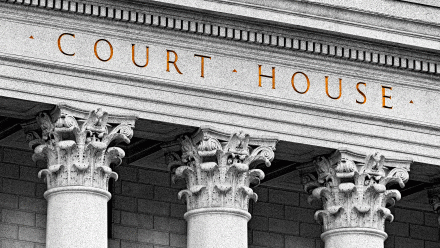When Crossroads Christian Fellowship in Rockford, Illinois, a church with a new 300-seat sanctuary, needed new flooring for a large portion of its administrative area, Pastor Randy Hargate researched the choices. “There were many types of flooring to choose from,” he says, “everything from hardwood to carpeting.”
The options available to the church varied widely in price—but the purchase price was not Hargate’s primary consideration in making his decision. Instead, he based his decision on the total lifecycle cost, a strategy long-known in business circles, and one that church leaders and business administrators can use to help ensure better, longer-lasting purchases get made.
The pastor did his homework, studying the utility of the products relative to their total costs, which included the prices of the flooring, the costs of installation, the costs of maintenance throughout each product’s lifetime, and the eventual replacement costs, among other things.
“After exploring the installation problems associated with hardwood and our all-cement floor, and the carpeting possibility, which did not seem to work for us, I decided to go with rubber-plank flooring,” explains Hargate.
Once he chose the best possible solution based on several factors, only then did he turn his attention to the best possible price. “Our local stores were not very aggressive for the sale, so I went on the Net and shopped,” he says.
That effort saved the church 37 percent compared to the local dealer’s price.
Had Hargate focused solely on the lowest price, it may have led to an unsatisfactory product, and quite possibly a higher overall cost in the long run. Had he focused on the highest quality product available, it may have led to a higher-priced selection that didn’t best apply to his church’s situation.
His situation illustrates the usefulness of calculating lifecycle costs, serving as a vivid reminder that rock-bottom prices don’t always equate to good stewardship for churches, even when tougher economic times tighten budgets for decision-makers.
Don’t Think Like a Shopper
In the corporate world, money is spent to further the business goals of the corporation. Executives are held accountable by a board of directors, employees, shareholders, and creditors for how money is spent. Likewise, people who donate funds to churches hold their leaders accountable for how finances are handled. While they aren’t looking for a financial return on their money, donors do expect the money to effectively advance ministry goals. It’s often called “stewardship,” but the definitions churches use often are short-sighted ones.
Good stewardship is not about getting the lowest price possible for a product or service. Nor is it about buying the highest quality available. Rather, it’s about getting the most effective use from ministry funds. There are right ways and wrong ways to evaluate a potential purchase. Unfortunately, many ministry dollars are wasted on “good deals.”
As consumers, we are ingrained with the importance of purchase price. Retail businesses understand the shopper’s fixation with price, and they work hard to create the reputation of offering the lowest purchase price. Quality, value, and the true costs of purchasing and owning the product are often secondary thoughts.
But business and ministry leaders cannot afford to shop by price alone. Inferior goods can jeopardize the business or ministry and its reputation. Like business leaders, ministry leaders should seek out companies that offer commercial-quality products and services. The same principles used for procuring high-value items in a Fortune 500 company should be applied when purchasing items for a church of any size.
Pastor Hargate says churches should use the same purchasing principles as a commercial enterprise. “I have found that a church is considered commercial by the building departments of our city inspector’s office, and that it is proved to be commercial when you look at the wear and tear experienced on most everything in a church,” he says.
What differentiates a commercial-buyer mindset from the average consumer’s mindset? Before considering purchase price, a commercial buyer needs to investigate many other factors, including:
- Delivery cost.
- Installation cost.
- Annual maintenance cost.
- Operating cost.
- Operator training cost.
- Rework costs due to inferior quality.
- Insurance cost.
- Useful lifetime expected.
- Disposal cost.
Other considerations include performance, appearance, aesthetics, and environmental impact—factors that are difficult to assign a dollar amount to, but might be very important to the purchasing decision. Considering all these factors in the aggregate is much more important than purchasing on price alone.
Dig Deeper
The expression “total lifecycle cost” is a common part of business vernacular in almost every industry. And although total lifecycle cost considerations sound simple, they often require buyers to shed their purchasing habits as consumers and take on new purchasing habits as commercial buyers.
“Aside from the purchase of a disposable commodity where price point is everything, stewardship is about the wise use of God’s resources,” says Dr. Thomas McElheny, founder and chief executive officer of ChurchPlaza, a leading provider of quality products and services to the church market. McElheny believes that value is a combination of many variables, including price, quality, and other intangibles, such as informed service and guarantees.
Approaching purchases with the total cost of ownership in mind gets to the essence of value, according to Tom Nickell, president and CEO of Lightworks New Media, developer of Web Medley, a solution to aid congregations in reaching out and staying connected with their members. “Wise stewardship can be viewed as realizing the highest usage of the resources available to the church—getting the most value out of those resources, whether they are money or time,” he says. “A wise steward of church resources should be looking at the overall value of any purchase decision for the church. That is far beyond simply looking at the initial purchase price.”
There is little doubt that real value can be achieved when the total cost of ownership is a guiding principle. However, for many churches, such a practice is dependent upon a committee or acquisition team that possesses good business sense and some knowledge of commercial purchasing practices.
“Having a church large enough to find people with the background needed to contribute the information needed to make a wise purchase is a great luxury,” Hargate says. “When sought out, these people are not only willing to contribute their experience but likely to direct you to a purchase and the most cost-effective place to make the acquisition. They can often use their influence to orchestrate volunteer labor to install the purchase or negotiate a discount.”
Run the Numbers
Churches can approach a life-cycle purchasing mentality many ways. One method is to devise a list of questions to help ascertain the total lifecycle cost of the product. Examples of the types of questions to ask include:
- What are the options regarding materials of construction?
- Are spare parts required, and if so, what is their cost and availability?
- What is the lifespan of each type of material?
- How much will regular service and maintenance cost?
Put those questions in a tabular form, and answer them for several different options. The results will help you make a better buying decision and document why you made the decision—which is helpful should someone question what was done.
McElheny recommends an equation that includes price, plus product quality, plus services and guarantees, plus reputation of the supplier. Quantify each factor on a scale of one to ten, with a double rating for reputation of the supplier. Add the total for each option. “Run the numbers and make a decision,” McElheny says. “It will usually be the best one.”
An example of this might be a heat pump purchase where different models and manufacturers are being evaluated. Points may be allocated for parts warranties, such as the heat pump’s compressor and heat exchanger, giving more points for lifetime warranty, versus ones lasting three or five years. Points could also be allocated for the energy ratings of the different models, frequency of cleaning required, and other factors. The purchasing committee could consult overall ratings of the manufacturers from sources, such as associations and nonprofits that evaluate such equipment. The overall ranking by third parties could be given a greater weight in the points allocation of the purchase decision.
Nickell says he stresses looking ahead three to five years or another reasonable timeframe for what is being purchased. Add up the costs, which should include maintenance, upgrades, and repairs. This will illuminate the potential value to the church over that timeframe.
“The values placed on the benefits may be different, or determined in different ways,” Nickell says. “But the basic approach should still be the same. As accurately as possible, determine the overall costs over the product life, and then weigh them with the value likely to be realized by the church over the life of the product.”
Jim Romeo is a freelance writer in Virginia.



















